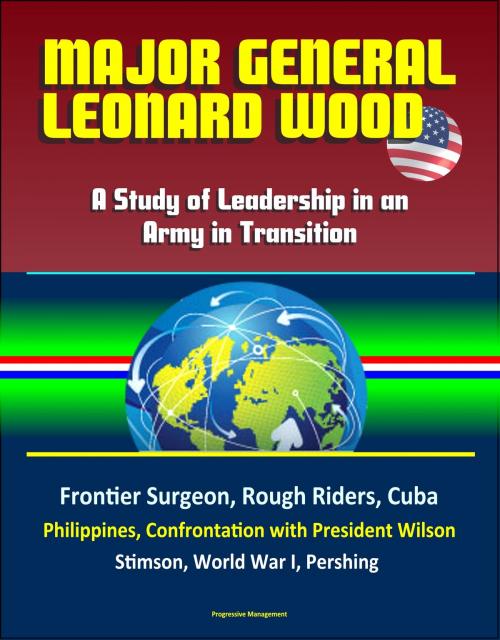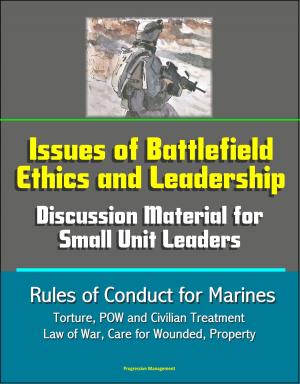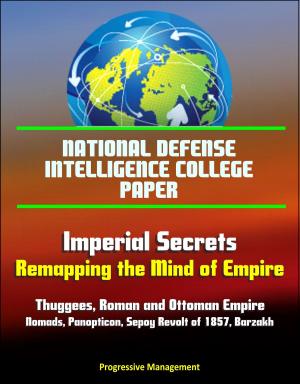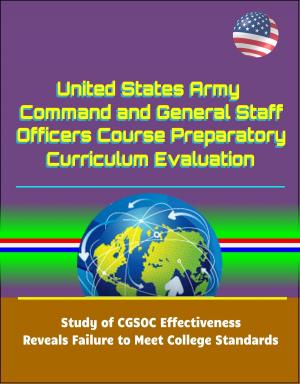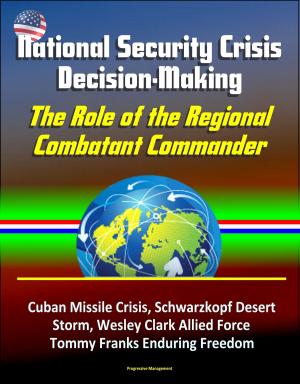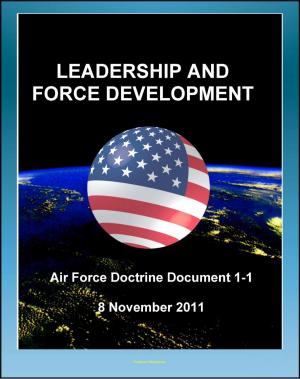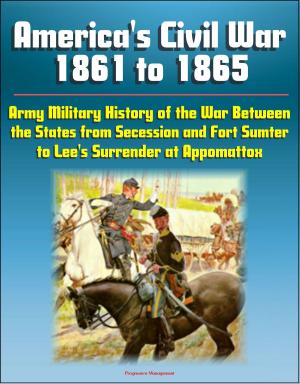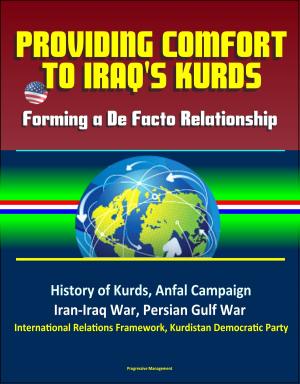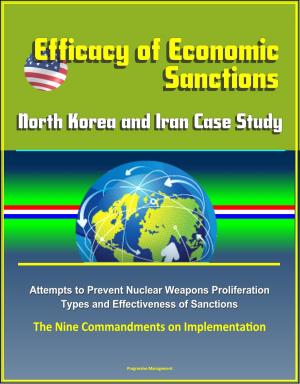Major General Leonard Wood: A Study of Leadership in an Army in Transition - Frontier Surgeon, Rough Riders, Cuba, Philippines, Confrontation with President Wilson, Stimson, World War I, Pershing
Nonfiction, History, Military, United States| Author: | Progressive Management | ISBN: | 9781370744404 |
| Publisher: | Progressive Management | Publication: | September 29, 2016 |
| Imprint: | Smashwords Edition | Language: | English |
| Author: | Progressive Management |
| ISBN: | 9781370744404 |
| Publisher: | Progressive Management |
| Publication: | September 29, 2016 |
| Imprint: | Smashwords Edition |
| Language: | English |
This important report has been professionally converted for accurate flowing-text e-book format reproduction. Leonard Wood rose from obscure civilian contract doctor in the American southwest of 1885 to Chief of Staff of the United States Army as the Army itself changed from frontier constabulary to global fighting force. Besides his service as Chief of Staff, Wood was a Medal of Honor winner in the campaign to capture Geronimo; commander of the Rough Riders in Spanish American War; Governor of Cuba and later the Philippines; a prolific writer; and, candidate for President of the United States. He was the "Prophet of Preparedness" and dedicated his career to initiating training and readiness improvements in the Army in the years of transition before World War I. But Leonard Wood was foremost a political general, shrewd, ruthless, and often insubordinate. Capable and ambitious, he used friends and position to further his power, prestige, and his singular vision of America. Eventually his conflict with influential political leaders, fellow generals, and presidents led to his "banishment" to Kansas while the Army he had spent years in promoting marched to World War I without him. Even now, he remains an enigma to the Army's officer corps. This study reviews Leonard Wood's service as the Army's foremost strategic leader in a period of unprecedented transition to examine his leader competencies and the political-military relationship lessons learned that may be apropos to today's Army leaders.
Chapter I - Purpose and Introduction * Purpose of the Study * Introduction * Leadership, Vision, and Leonard Wood * Four Phases of Study * Endnotes, Chapter I * Chapter II - The State of the Army * The Field Army * The National Command Authority * The National Guard * Overview * Endnotes, Chapter II * Chapter III - The State of the Nation * Early Expansionism * Sustained Expansionism * Anglo-Saxonism, Social-Darwinism * Overview * Endnotes, Chapter III * Chapter IV - Leonard Wood as Leader — Early Examples * Frontier Surgeon * Coming to Washington * Endnotes, Chapter IV * Chapter V - Leonard Wood as Leader — Rise to General * War with Spain * The Rough Riders * Governor in Cuba * Controversy in Cuba * Endnotes, Chapter V * Chapter VI - Leonard Wood as Administrator in the Philippines * The Moro Province * The Jolo Campaign * The Bud Dejo Campaign * Endnotes, Chapter VI * Chapter VII - The Chief of Staff and Confrontation with Wilson * Becoming Chief of Staff * The McLachlan Amendment * With Secretary of War Stimson * President Wilson * Fighting the Preparedness Campaign * World War I * Endnotes, Chapter VII * Chapter VIII - The Final Challenge — Pershing * Early Relationships * As Chief of Staff * Commander of the AEF * Presidential Campaign * Endnotes, Chapter VIII * Chapter IX - Final Thoughts * Final Thoughts
This important report has been professionally converted for accurate flowing-text e-book format reproduction. Leonard Wood rose from obscure civilian contract doctor in the American southwest of 1885 to Chief of Staff of the United States Army as the Army itself changed from frontier constabulary to global fighting force. Besides his service as Chief of Staff, Wood was a Medal of Honor winner in the campaign to capture Geronimo; commander of the Rough Riders in Spanish American War; Governor of Cuba and later the Philippines; a prolific writer; and, candidate for President of the United States. He was the "Prophet of Preparedness" and dedicated his career to initiating training and readiness improvements in the Army in the years of transition before World War I. But Leonard Wood was foremost a political general, shrewd, ruthless, and often insubordinate. Capable and ambitious, he used friends and position to further his power, prestige, and his singular vision of America. Eventually his conflict with influential political leaders, fellow generals, and presidents led to his "banishment" to Kansas while the Army he had spent years in promoting marched to World War I without him. Even now, he remains an enigma to the Army's officer corps. This study reviews Leonard Wood's service as the Army's foremost strategic leader in a period of unprecedented transition to examine his leader competencies and the political-military relationship lessons learned that may be apropos to today's Army leaders.
Chapter I - Purpose and Introduction * Purpose of the Study * Introduction * Leadership, Vision, and Leonard Wood * Four Phases of Study * Endnotes, Chapter I * Chapter II - The State of the Army * The Field Army * The National Command Authority * The National Guard * Overview * Endnotes, Chapter II * Chapter III - The State of the Nation * Early Expansionism * Sustained Expansionism * Anglo-Saxonism, Social-Darwinism * Overview * Endnotes, Chapter III * Chapter IV - Leonard Wood as Leader — Early Examples * Frontier Surgeon * Coming to Washington * Endnotes, Chapter IV * Chapter V - Leonard Wood as Leader — Rise to General * War with Spain * The Rough Riders * Governor in Cuba * Controversy in Cuba * Endnotes, Chapter V * Chapter VI - Leonard Wood as Administrator in the Philippines * The Moro Province * The Jolo Campaign * The Bud Dejo Campaign * Endnotes, Chapter VI * Chapter VII - The Chief of Staff and Confrontation with Wilson * Becoming Chief of Staff * The McLachlan Amendment * With Secretary of War Stimson * President Wilson * Fighting the Preparedness Campaign * World War I * Endnotes, Chapter VII * Chapter VIII - The Final Challenge — Pershing * Early Relationships * As Chief of Staff * Commander of the AEF * Presidential Campaign * Endnotes, Chapter VIII * Chapter IX - Final Thoughts * Final Thoughts
